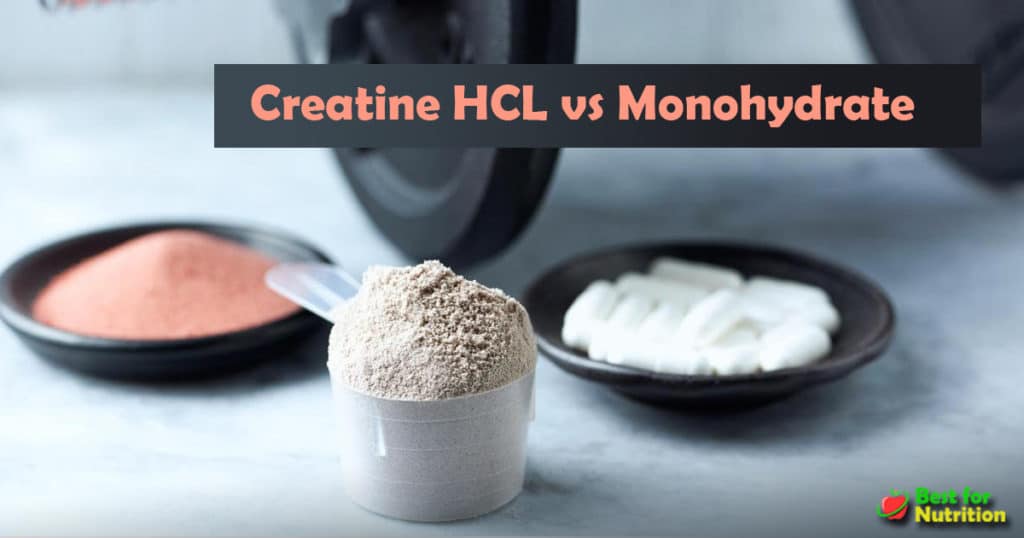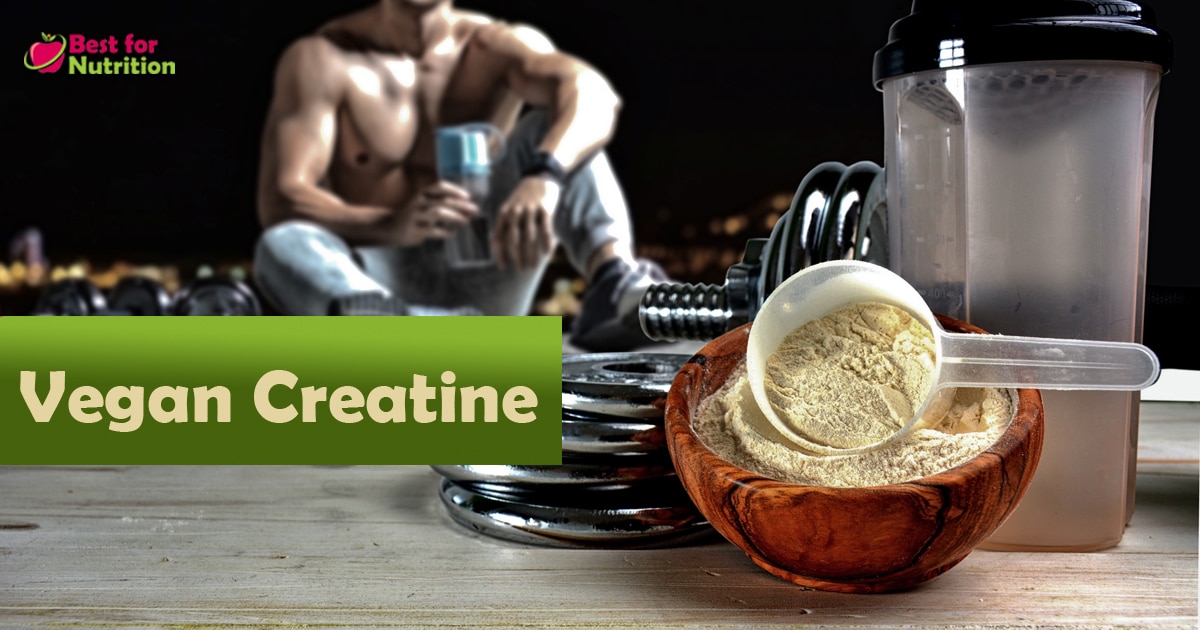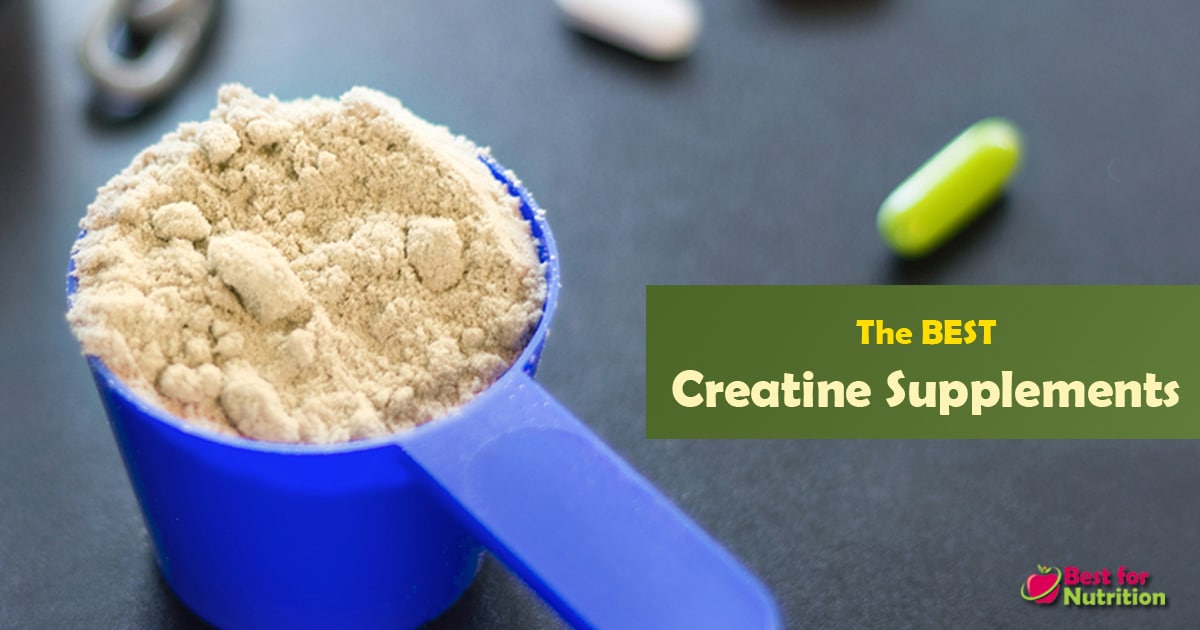If you are looking for a good sports supplement to improve your athletic performance, then creatine supplements can be a great choice.
A well-researched supplement, creatine is proven to be effective in building muscles and enhancing strength.
Creatine supplements are available in the market in the form of creatine monohydrate and creatine HCL. Let’s take a look at the differences between the two and find out which one is better and why!
- Value for Money: With 50 servings per container, Bucked Up Creatine offers great value and is a cost-effective option for creatine supplementation.
- Taste-Free and Easy to Drink: The product has little to no taste, making it easy to mix into any drink without affecting flavor.
- High-Quality Creatine: The micronized creatine ensures better absorption, helping users see improvements in performance and muscle gain.
- Mixability: The powder mixes well with other supplements or drinks, providing a smooth texture without clumping.
- Muscle Gain and Workout Support: Many users report increased muscle mass and improved workout performance, making it an essential addition to fitness routines.
- What is Creatine?
- How Does Creatine Work?
- What is Creatine Monohydrate?
- What is Creatine Hydrochloride (HCL)?
- Comparison Between Creatine HCL and Monohydrate
- Creatine HCL vs Monohydrate: Which One to Choose?
- Why Choose Creatine Monohydrate?
- FAQs

What is Creatine?
Creatine is one of the most popular nutritional aids known to enhance athletic performance. It is a naturally occurring, non-protein amino acid compound found primarily in red meat and seafood.
Most creatine is present in the muscle mass of an individual, and 1 to 2% of it gets degraded to creatinine that gets excreted into the urine. Hence your body needs 1–3 g of creatine per day to maintain normal creatine stores depending on your muscle mass.
Half of your daily creatine need is obtained from your diet, and the remaining is synthesized naturally in your body. As meat is the primary source of creatine, vegetarians typically have lower amounts of it in their bodies (1).
Even with non-vegetarian dietary supplementation, muscle creatine can be raised by 20 to 40% only. According to studies, the most effective way to build muscle creatine stores is supplementation intake (2).
Creatine supplementation increases intramuscular creatine concentrations, which improve high-intensity exercise performance leading to more significant training adaptations.
Researchers have also revealed that short and long-term supplementation of up to 5 years, is safe and well-tolerated by healthy individuals (3).
Summary: Creatine is the non-protein amino acid found in muscles. Its supplements play a crucial role in improving your performance during high-intensity exercises.
How Does Creatine Work?
Creatine is the most popular and widely used natural supplement. Various studies have been conducted to evaluate the effect of creatine as a sports supplement.
Scientific studies have revealed that creatine supplements increase intercellular water content in muscles that enhances muscle stiffness and resistance to stretch (4).
Neural outflow from tissues is regulated due to increased muscle mass. Thus creatine amplifies the effect of resistance training and improves aerobic endurance.
Creatine combines with phosphate to form creatine phosphate, which plays a significant role in cellular energy production (5). It helps in the formation of adenosine triphosphate (ATP), which is a major source of cellular energy.
According to the International Society of Sports Nutrition, the use of creatine as a nutritional supplement within established guidelines is safe and effective. It improves not only strength and lean body mass but also proven to be beneficial in preventing injury (3).
Summary: Consuming creatine supplements aids in ATP production, improves your performance and strength. It is an effective and safe sports supplement.
What is Creatine Monohydrate?
As a nutritional supplement, the most widely used and well-researched form of creatine is creatine monohydrate.
Creatine monohydrate is a well-known dietary supplement that enhances your muscle mass in a short duration. It also improves your high-intensity resistance exercise performance by helping in ATP formation.
Creatine monohydrate is a form of creatine supplement that is made up of a creatine molecule and a water molecule. It resembles the natural form of creatine synthesized in your body (6). Sometimes it is micro ionized to improve its solubility and absorption (7).
Various methods of preparation are used in the manufacturing of creatine supplements. When the water molecule is removed, it is called anhydrous creatine. This removal of water increases the concentration of creatine in the supplement dose.
Anhydrous creatine contains 100% creatine, whereas classical creatine monohydrate has approximately 90% of pure creatine.
Creatine monohydrate supplementation has been shown to increase fat-free mass and high muscle strength, possibly via cell swelling (8). By increasing water content in muscle cells, it enhances muscle growth.
A large number of research studies have been conducted, and the outcome of the results clearly indicates that creatine is a safe supplement and has no severe adverse effects.
Summary: Creatine monohydrate is a well-researched and widely used form of creatine. Studies have suggested that it is a safe and effective form of creatine supplement.
What is Creatine Hydrochloride (HCL)?
It is believed that creatine HCL has better solubility and absorption than other forms of creatine.
According to research studies, 5 g of creatine HCL helped to build a strong relationship between strength and body composition. It was found beneficial in recreational weightlifters (9).
Creatine HCL is formed by binding of creatine with the hydrochloride molecule. It is gaining more popularity because of its better solubility in water.
A 2010 study noted that creatine hydrochloride is 38 times more soluble than creatine monohydrate (10). But, there are no human studies to confirm these effects of creatine HCL.
Due to the lack of studies, the HCL form of creatine can not be recommended as a better form. However, it can be used for people who experience stomach upset with creatine monohydrate. With better absorption and solubility, there are fewer side effects for creatine HCL.
Summary: With high solubility, though creatine HCL shows positive and favorable effects, more studies are needed to confirm its benefits.
Comparison Between Creatine HCL and Monohydrate
Solubility
A significant difference between creatine HCL and monohydrate is solubility. As mentioned above creatine HCL has shown better solubility than monohydrates. It is believed that due to better solubility creatine HCL gets absorbed better.
Due to favorable solubility creatine HCL is slightly easier on your stomach and has fewer side effects. Though, both creatine HCL and monohydrate work in the same way, these benefits may differ from person to person.
We can conclude, saying that creatine HCL is better, as it is better absorbed, but there is not enough evidence to support this theory. Whereas creatine monohydrate is more backed with research studies for its effectiveness and safety.
Summary: It is believed that creatine HCL has better solubility than monohydrate, which results in faster absorption.
Water Retention and Weight Gain
All forms of creatine cause water retention in your muscle cells, which is also a reason for some weight gain and fuller looking muscles. Some people claim that creatine HCL does not cause water retention, but, again it lacks any evidence to prove that.
However, cell osmolarity and water retention have shown to increase muscle power and muscle growth (8). You may experience weight gain and fuller muscles in the first few weeks due to this water retention, which reduces with time. With consistent use of supplements, you will have lean and strong muscles.
So, we can say any form of creatine causes water retention in the short-term. We can not agree that creatine HCL is better based on the belief that it does not cause water retention.
Summary: Creatine causes water retention, though it is believed that creatine HCL does not cause water retention, it lacks evidence.
Side Effects
According to sources, with creatine monohydrate, you may experience some discomfort and creatine HCL has no side effects.
However, you will not experience any adverse effects with recommended doses. Side effects are generally seen with excessive consumption of creatine. Your body may take some time to get used to creatine supplements. Make sure to keep yourself well hydrated when you start taking these supplements.
If you follow the above-mentioned precautions, you may not experience any side effects. Both creatine HCL and monohydrate are safe supplements.
Still, if you experience stomach pain or any discomfort with creatine monohydrate, you can try creatine HCL. Your body needs time to adjust with any form of creatine; hence give enough time while trying for the first time.
Summary: There is less chance of experiencing any side effects when proper dosage guidelines are followed.
Benefits
Whether you use creatine HCL or monohydrate, the benefits remain the same. The most important benefits include increased strength and muscle growth.
Creatine supplements improve your performance, delays fatigue, helping you to exercise better and longer. With more workout, you tend to gain more muscles.
Regardless of the form, creatine supplement has shown to increase strength, build fat-free mass, and muscle morphology with heavy resistance training.
Creatine may also benefit in other modes of exercise, such as high-intensity sprints or endurance training (11). Some studies have shown that creatine also carries a therapeutic effect on muscles (12).
So, when it comes to benefits, both forms of creatine are equally effective. But, creatine monohydrate has more evidence-based claims to prove its effectiveness.
Summary: Both creatine monohydrate and HCL are equally effective in increasing strength and endurance.
Creatine HCL vs Monohydrate: Which One to Choose?
With all the above considerations, we can say creatine monohydrate can be a safer choice. With more confirmed evidence of bringing results creatine monohydrate gains more trust.
If you are just starting out with these supplements, then go for creatine monohydrate. Wait for some time to see how your body reacts. If you experience any side effects, then you can switch to creatine HCL.
Why Choose Creatine Monohydrate?
Maximum research has been conducted on the creatine monohydrate than any other form of creatine.
Good Safety Record
Creatine monohydrate is safe to consume for both short-term and long-term use. Even in high doses, this supplement appears to be safe for usage.
Easy to Find
Most of the creatine supplements are made of creatine monohydrate. You can easily find creatine monohydrate in any online store.
Affordable
Creatine monohydrate has been available for a long time, making it the most affordable form of creatine supplement. Creatine HCL is a newer form; hence it is expensive when compared to monohydrate form.
Purest Form
Creatine monohydrate is considered as the purest form of creatine available in the market. It is the most effective sports supplement that improves your exercise performance.
Summary: Creatine monohydrate is the most researched form of creatine in the market. Considered the purest form of creatine, it has a good safety record. It is affordable and easily available in shops and online.
Frequently Asked Questions
What is the Recommended Dose for Creatine?
The dosage for creatine depends on your weight and eating habits. Generally, 3 to 5g per day is recommended.
The creatine loading phase is followed to rapidly maximize the muscle stores, during which a large amount of creatine is consumed in a short period of time. In this period, 25g per day is recommended.
How Should I take Creatine?
Creatine dissolves easily in the liquids, especially creatine HCL. Hence it can be added to any drink. Creatine monohydrate may take a bit while longer to dissolve, but still you can use it the same way.
You can mix it with plain water. It may have a mildly bitter taste. So it will be much tastier when added to fruit juice or your pre-workout/post-workout smoothies.
Creatine is better absorbed in the presence of insulin, so the fruits are a great choice for adding some healthy carbs. Try mixing your creatine with a glass of fruit juice such as grape juice. You can blend some seeds, nuts and fruits such as bananas or berries in your creatine smoothie to add more taste and nutrients.
Creatine supplements are also available in the form of capsules and energy bars. Since creatine draws in more water into your muscle cells, it’s important to drink plenty of water afterward.
What is the Best Time to Take Creatine?
It depends on your preference. Creatine has excellent pre-workout and post-workout benefits.
Taking it before a workout offers you more energy and strength for your workout and improves your performance.
It helps in rehydration and improves the uptake of carbohydrates into muscle cells. You can add it to your post-workout drinks for faster muscle recovery and repair.
The Final Note
Based on all the scientific data, our choice of the best form of creatine supplement is – creatine monohydrate. It is the safe, affordable, and most effective type of creatine available in the market.
Many research studies have supported the effectiveness of creatine monohydrate in improving your athletic performance and muscle strength.
Creatine HCL lacks evidence in this regard. It is also more expensive compared to creatine monohydrate. Although the effects of creatine HCL are promising, we need more research studies to prove these benefits.






